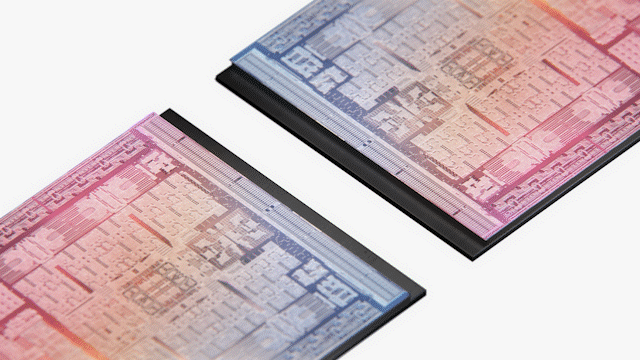The M2 Ultra is Apple’s latest system-on-a-chip (SoC), designed to give a massive increase in performance for Mac systems, and specifically to power the new Mac Studio and Mac Pro desktops. As Apple’s largest and most capable chip to date, it promises to make these the most powerful Mac desktops ever produced. Apple claims, the Mac Pro equipped with M2 Ultra has the equivalent power of seven Afterburner cards, which were relied on in the Intel-based Mac Pro for video acceleration.

It’s built on a 5-nanometer process technology and features a whopping 134 billion transistors, which is 20 billion more than the previous M1 Ultra. What’s interesting about this chip is the way it employs Apple’s UltraFusion technology to combine the die of two M2 Max chips, which effectively doubles the performance.
Apple’s UltraFusion technology utilizes a silicon interposer that connects the dies with over 10,000 signals, providing more than 2.5TB/s of low-latency interprocessor bandwidth. It also enables the M2 Ultra to appear as a single chip to software, removing the need for code adjustments to leverage its capabilities.
This SoC supports up to 192GB of unified memory, a 50% increase over the M1 Ultra. The memory architecture delivers a significant 800GB/s of memory bandwidth, doubling that of the M2 Max. This increase in unified memory is expected to support more robust workflows and higher performance for machine learning applications.
The CPU, GPU, and Neural Engine have also received significant performance enhancements. The CPU now has 16 high-performance cores and eight high-efficiency cores, and it’s said to deliver a performance boost of up to 20% compared to M1 Ultra. The GPU configuration can have up to 76 cores, resulting in a 30% performance improvement over the M1 Ultra’s GPU. Furthermore, the Neural Engine, now featuring 32 cores, performs up to 40% faster than the one in the M1 Ultra.
The M2 Ultra’s display engine supports up to six Pro Display XDRs, driving more than 100 million pixels. (Source: Apple)
The SoC includes a powerful media engine with twice the capabilities of the M2 Max, accelerating video processing. It offers dedicated, hardware-enabled H.264, HEVC, and ProRes encode and decode, enabling M2 Ultra to handle up to 22 streams of 8K ProRes 422 video, a feature unmatched by any PC chip.

